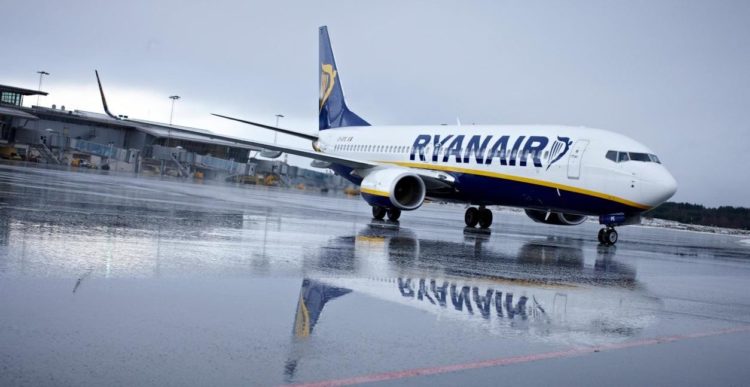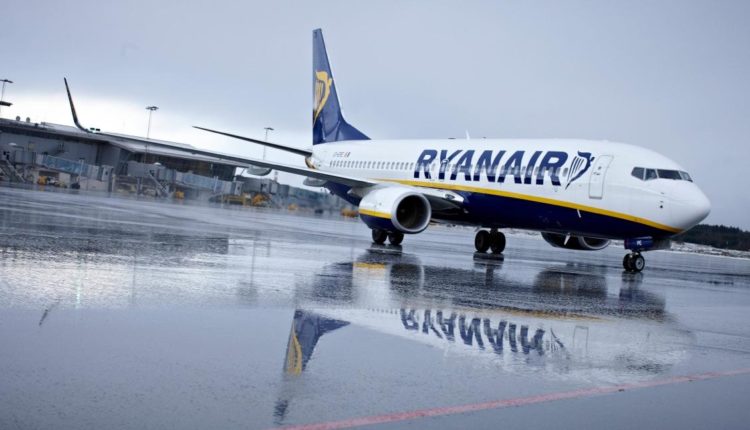Low-cost airline Ryanair, one of the biggest carriers at Liverpool Airport, is further cutting capacity from its winter schedule amid further COVID-19 restrictions across Europe. Tony McDonough reports

Ryanair is to slash its winter capacity from 60% to 40% as bookings continue to fall in the midst of new COVID-19 restrictions across Europe.
And the low-cost carrier, which in normal times operates more than 30 routes out of Liverpool John Lennon Airport (LJLA), said it expects passenger numbers for the year to March 31, 2021, to fall to 38m. It’s original target for the year was 154m.
Last week Ryanair’s main Liverpool rival, easyJet, said it expects full-year losses of more than £800m – the first deficit in its history. It admitted in a trading update that it was burning through cash.
Dublin-based Ryanair says due to increased flight restrictions imposed by EU governments, air travel to and from much of central Europe, the UK, Ireland, Austria, Belgium and Portugal has been heavily curtailed.
This has caused forward bookings to weaken slightly in October, but “materially” in November and December. In light of these weaker bookings, and Ryanair’s plan to operate with a 70% load factors, it has further reduced its winter schedule (November to March) taking capacity down from 60% to 40% of prior year.
It expects to maintain up to 65% of its winter route network, but with reduced frequencies. In addition to the winter closure of bases in Cork, Shannon, and Toulouse, Ryanair has announced significant base aircraft cuts in Belgium, Germany, Spain, Portugal and Vienna.
Ryanair chief executive Michael O’Leary said the full-year passenger guidance of 38m could be cut further with more lockdowns. He added: “We have continued to flex our capacity in September and October to reflect both market conditions and changing Government restrictions… which allows us operate as close to break-even as possible and minimise cash burn.
“While we deeply regret these winter schedule cuts they have been forced upon us by Government mismanagement of EU air travel. Our focus continues to be on maintaining as large a schedule as we can sensibly operate to keep our aircraft, our pilots and our cabin crew current and employed while minimising job losses.
“It is inevitable, given the scale of these cutbacks, that we will be implementing more unpaid leave, and job sharing this winter in those bases where we have agreed reduced working time and pay, but this is a better short term outcome than mass job losses.
“There will regrettably be more redundancies at those small number of cabin crew bases, where we have still not secured agreement on working time and pay cuts, which is the only alternative.”
Mr O’Leary urged all EU Governments to immediately, and fully, adopt the EU Commission’s Traffic Light System, which allows for safe air travel between EU states on a regional basis to continue.

